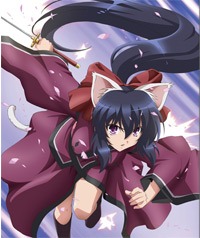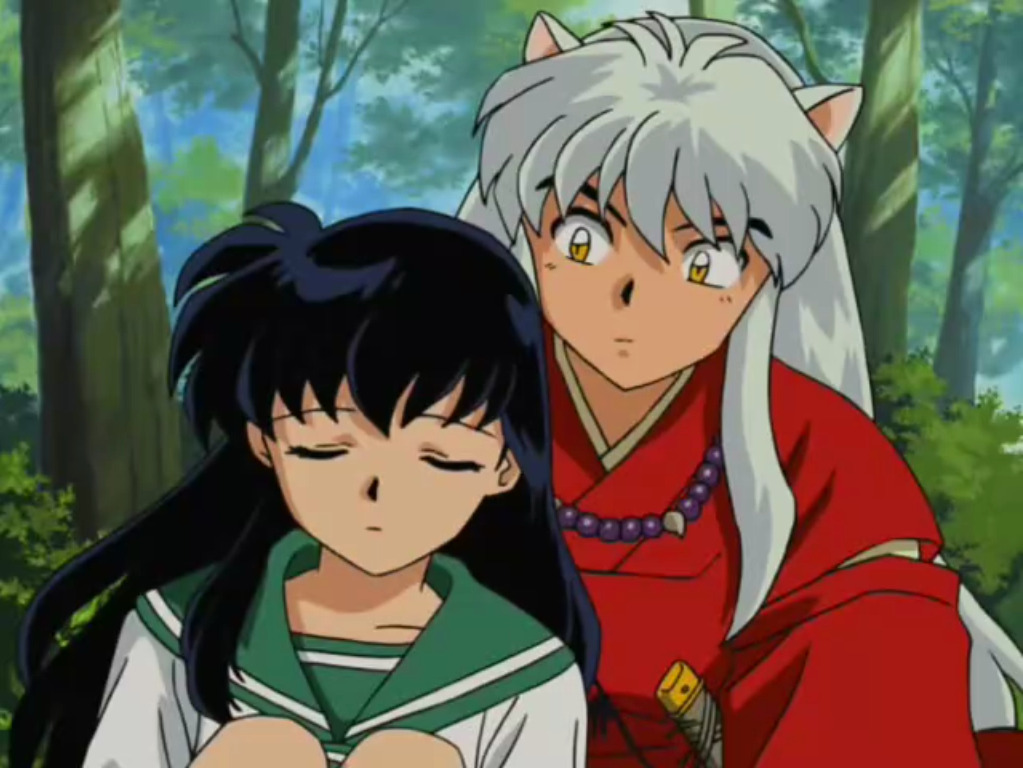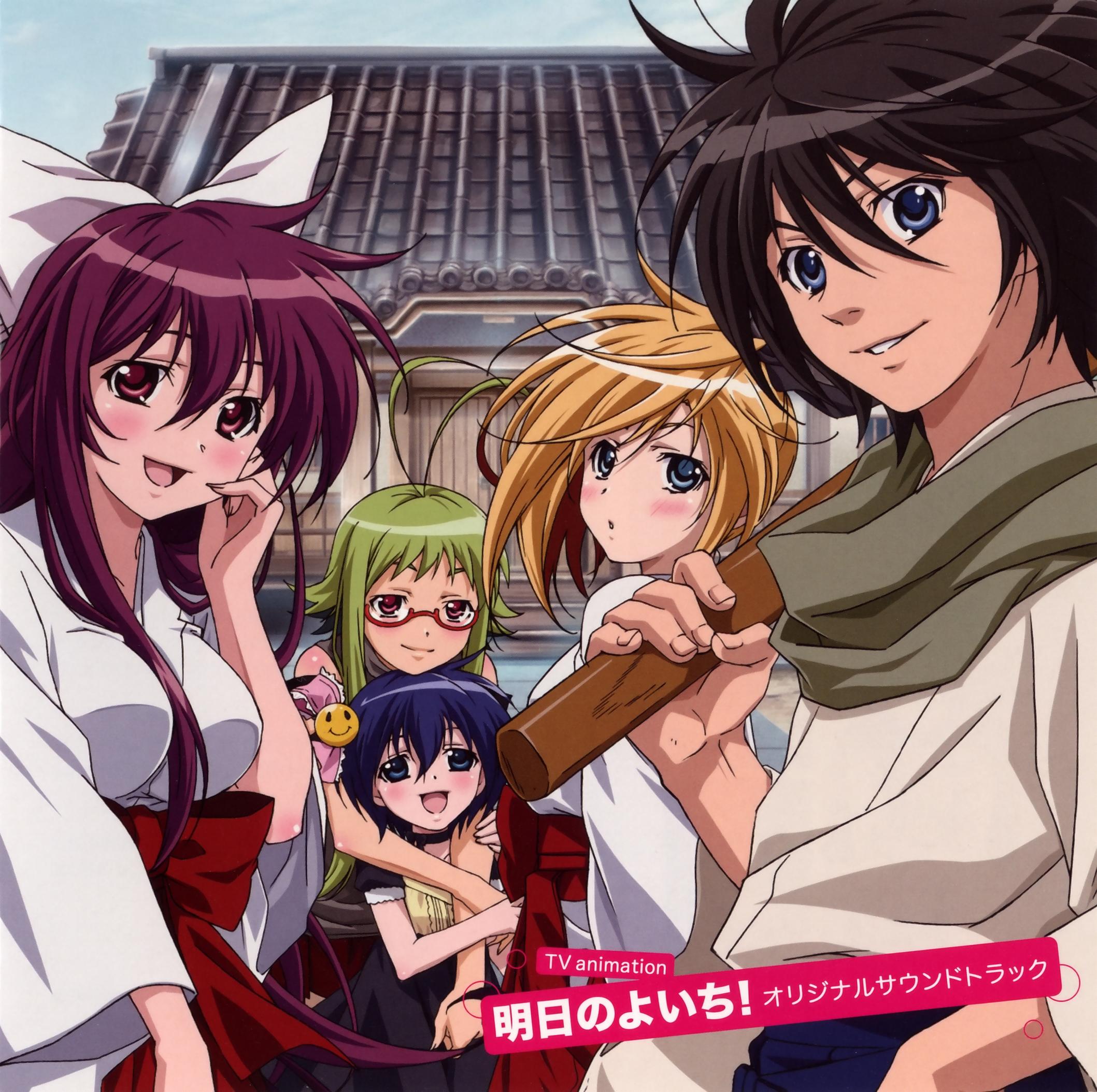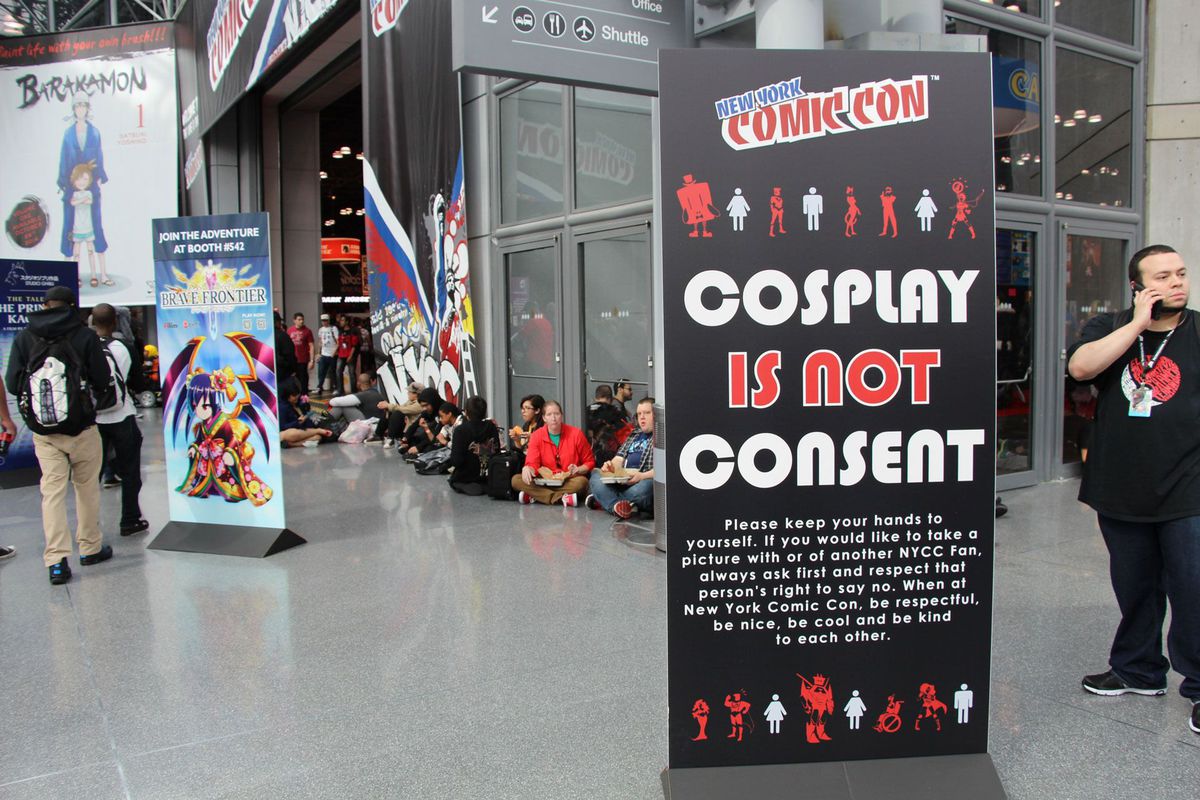
Omamori Himari was my first exposure to ecchi harem anime. It’s been over a decade since I last watched it, so I thought I’d give it a revisit. I’ve enjoyed some harem comedy in the past (the few that are fairly well-thought out), so I can, sometimes, appreciate the appeal the genre has. Even a mediocre story like Omamori Himari offers some insights to an important theme.
Japanese storytelling has a woman-as-savior theme. If I’m wrong about this, please tell me in the comments. From what I’ve observed from works ranging from Snow Country to Murakami’s modern works, many Japanese male writers hold women as the path for salvation for men. Either she rescues the male lead from danger, in the case of anime like Omamori Himari, or her sexuality provides a means to enlightenment or salvation from his inner problems. In Omamori Himari Himari often has to save Yuto, and her love for him eventually helps him unlock his hidden Demon Slayer power. This chain of events, a cute girl falls for a bland, if kind and dense, male and then later redeems him in some way, appears often in anime. As far as I can tell, the story traces to older Japanese stories that invert the old Buddhist tales of women turning men away from salvation. I haven’t pinpointed exactly when this reversed, but it seems the modern era, from the 1900s onward, focuses on this story. I see many folktales with a similar bent–even if they end without a Western-style happy ending, from the Edo period. Although there are far older tales that follow the template, such as the Ainu folktale The Man who Married the Bear Goddess:
Some time ago a village prospered. Its villagers enjoyed plenty of venison, fish, and every type of food. However, one year a terrible famine set in. The villagers were unable to find even the smallest fish to eat, and all the wildlife fled. One by one, all of the villagers died until only the village chief and his son and daughter remained. Soon, the father too died, leaving the eldest daughter and her younger brother alone.
The daughter gathered their family’s treasures, stuffed them into a bag, and gave them to her brother. “Take these and buy food with them. Don’t think about bringing the food back to me. Eat it and live. It doesn’t matter if I die. I’m a girl and can’t inherit father’s property. But you can. Don’t let our family die.”
The boy didn’t want to leave his sister, but he knew if he stayed they both would starve to death. So he set out along the coast. He walked through the sand for some time when he came across a beautiful house. Near it was the fresh carcass of a large whale. The boy went to the house, knocked, and waited for a response. After a little time, he left his bag of treasures outside and entered. Inside sat a man who looked like a god. His speckled clothing sparkled, and his face shined. Beside him sat the man’s wife. She wore the finest black clothing. The boy stopped in the doorway, uncertain what to say for intruding on them.
“Welcome,” said the god. “Care to join us for a meal?”
The couple prepared a meal of whale meat, and the boy feasted on it. Throughout the meal, the woman never looked at him.
When they finished, the boy asked them to wait for a moment. He retrieved his bag of treasures from outside and offered them to the couple. “I will give you these in payment for the food.” The god took the bag and peered inside it. His face twitched with his excitement. “These are beautiful treasures, but you don’t have to pay me for the food. Tell you what. I will take these treasures to my other house and bring you treasures of my own to exchange for them. Please eat as much as you want.” The god left with the bag of treasure.
The boy remained with the woman. He kept quiet, feeling awkward being alone with a beautiful woman like her. After a few moments, the woman leaned toward the boy. “Listen close. I am the bear goddess. This supposed husband of mine is the dragon god. There’s no one more jealous than him. That’s why I didn’t look at you. Those treasures you offered are so special that not even the gods have them. He took them to make counterfeits. When he returns he will offer you similar counterfeits. You need to tell him: ‘We don’t need to make an exchange. I want to buy the woman.’ Even though he is jealous he is also as greedy as the sky is large. Do you understand?” The shaken boy nodded.
“I will marry you if you do this. We will have a happy life together. I promise,” she said. A sound outside separated them. The woman returned to looking outside the window. The god entered with the boy’s bag of treasures and a finer, larger bag. “Lad, I’ve returned with your treasures and my best ones so we can exchange equally.”
“I wouldn’t mind your treasures, but I want your wife even more. Please sell me your wife.” As soon as he spoke the words, a clap of thunder sounded. The boy felt as if a giant had boxed his ears. He gazed around him. The house had disappeared. The god was also gone, but the boy’s bag of treasure and the goddess remained.
“The dragon god left in a rage because he sensed how we want to be together,” the goddess said. “That was the noise you heard. Now we can live together.”
This is why the bear is a creature half like a human being.
In the story, the goddess saves the boy, uses him to save herself, and then marries the boy. Anime usually doesn’t have the boy marry; that would break the vicarious aspect of the blank slate harem protagonist. However, the template for the woman saving the guy remains. Writers like Murakami and Yasunari Kawabata tap into this idea and extend it to the full salvation of their male leads, often at the expense of the female.
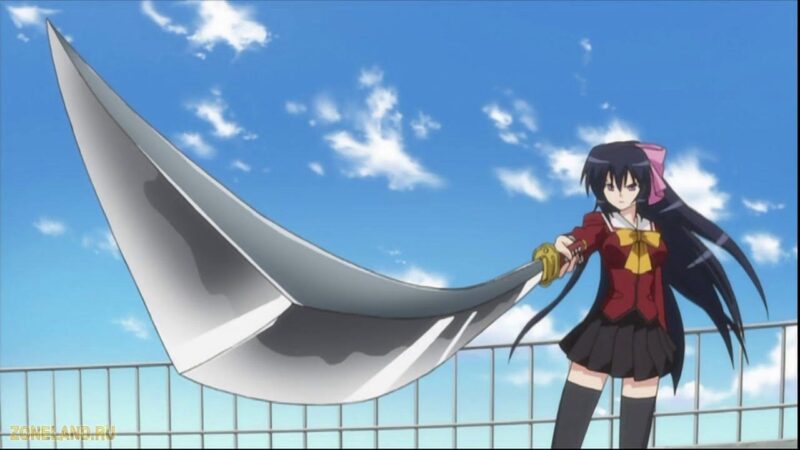
As Omamori Himari goes, it’s bland. Yuto’s purpose is to be rescued, be embarrassed by all the boobs and underwear, and otherwise act as a blank slate for the audience to project onto. He’s kind, but he doesn’t think for himself nor think ahead in any manner. He offers an excuse for the author to show off cute girls and follow the salvation template. The girls attract to him just because the plot, such as it is, demands it. Conflicts resolve quickly too. As you watch, you see the animators paid special attention to female anatomy more than on any sort of action scene, but then that is what most viewers come for in harem anime such as this.
Anime such as Omamori Himari insult both guys and girls. Guys are reduced to idiots or otherwise seeking some sort of outside salvation, as the literary template follows; although I will say this isn’t unique to anime nor the harem genre. In American sit-coms, the dad character is usually kindhearted but otherwise a moron or a blockhead or just inept. It’s perfectly possible to write a vulnerable but still competent man. Likewise, outside the body-boundary problems and voyeurism female characters are subjected to, girls in stories like this have pretty low standards in men. Kindness is all that matters. Granted, that is a pretty important trait, but what about intelligence, reflection, emotional intelligence? What about sensitivity?
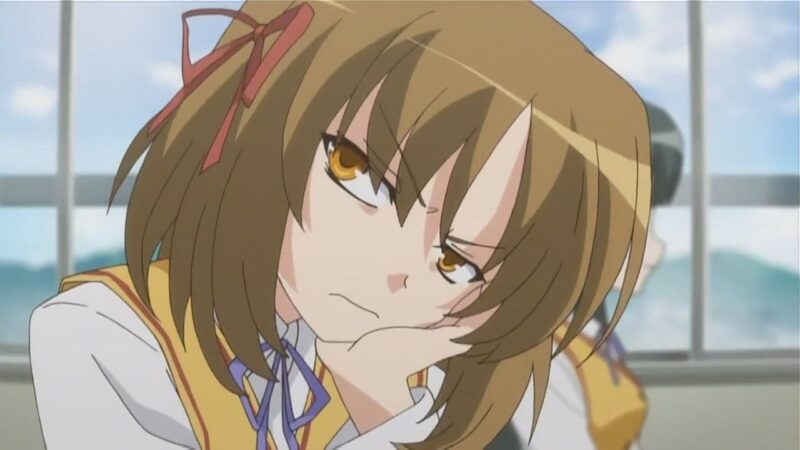
I beat up on harem anime, but again, this one-dimensional character template appears throughout media and literature. There’s a general simplification in every type of story that comes from the modern lack of focus. I see it in myself. I have problems sticking with a lengthy anime or series that allows time for more nuanced characters. I find myself unable to focus for long periods on books. Part of that is how modern technology and the demands of society fractures our ability to drill down and focus for long periods of time. Plus, such short-run content is less expensive to produce and more likely to return a profit.
As for Omamori Himari there are better harem, funnier harem out there. The animation hasn’t aged well, but it is interesting how certain trends haven’t changed, such as oversized chests, the salvation template, and various other tropes. Honestly, I’m surprised fans aren’t exhausted by them, considering how many decades these trends have existed.
